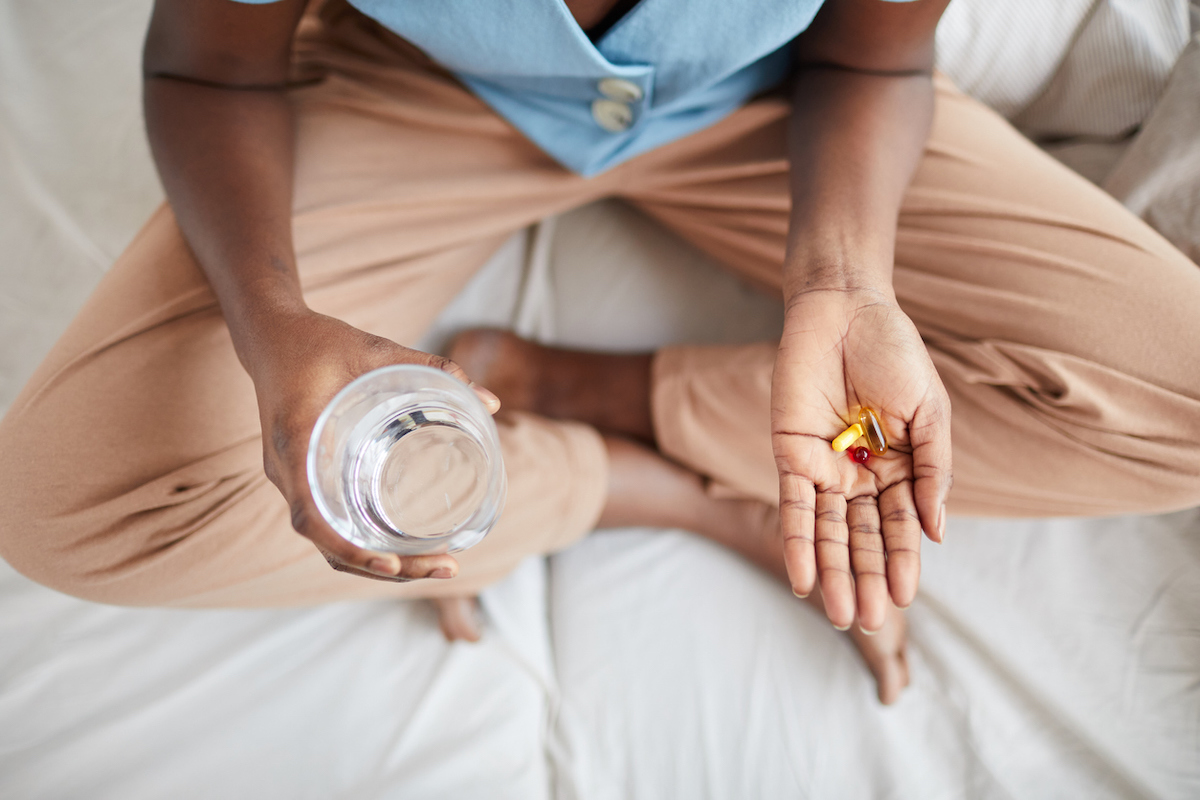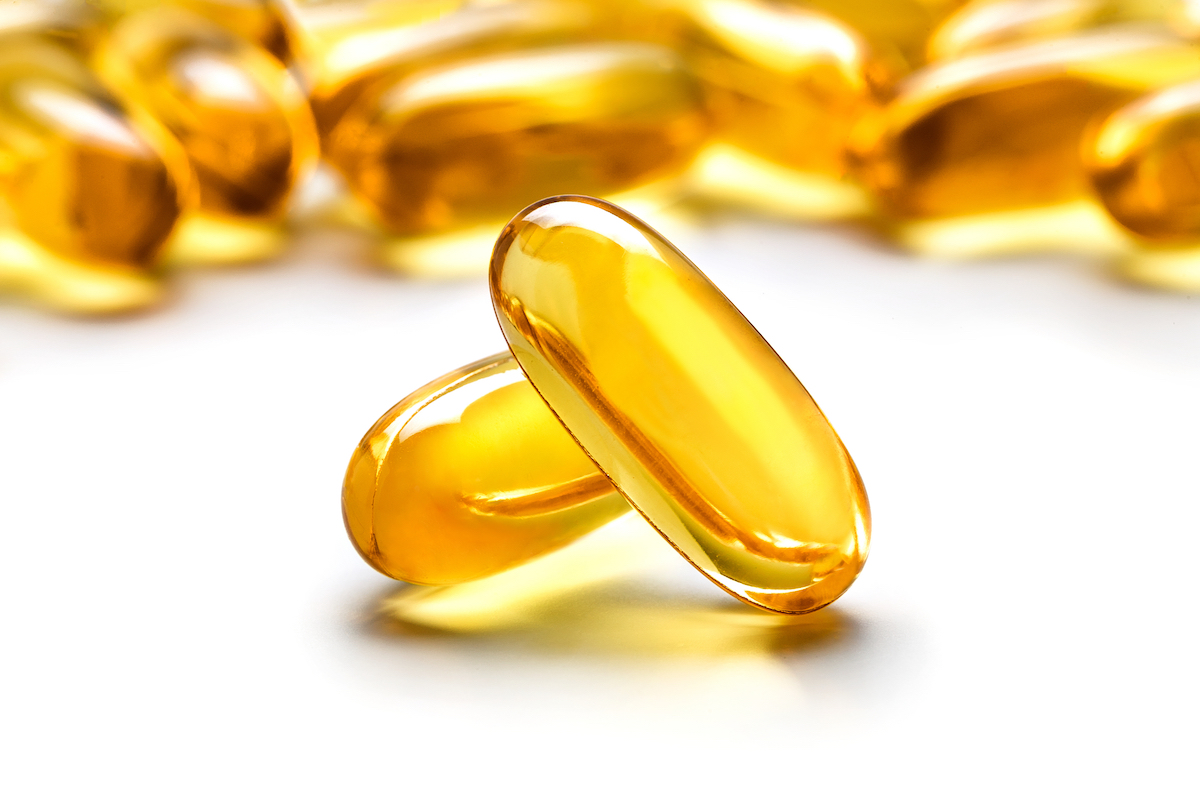The Cleveland Clinic says, “It’s especially important to avoid taking vitamin E supplements. Not only is there little clinical research showing that vitamin E supplements benefit your health, but they may also be harmful in some situations.” To learn why this particular supplement may not be a welcome addition to your diet, read on, and for more on the supplements that are worth taking, check out The 2 Vitamins Dr. Fauci Says You Should Take to Boost Immunity. Vitamin E is known mainly as an antioxidant. As the National Institutes of Health’s (NIH) Office of Dietary Supplements explains, “Antioxidants protect cells from the damaging effects of free radicals… [which] might contribute to the development of cardiovascular disease and cancer.” Vitamin E is also involved in immune function and helps with other metabolic processes. Rather than one particular substance, vitamin E is a group of compounds, and occurs widely in foods, particularly plant oils such as rapeseed or vegetable oil, sunflower, soya, corn and olive oil. It also occurs in nuts and seeds and the wheatgerm commonly found in cereals. Adults need 15 mg per day, according to the NIH, but “you should be able to get all the vitamin E you need from your diet,” the U.K.’s National Health Service guide advises. Unlike, say, vitamin C which cannot be stored in the body, any vitamin E that your body doesn’t need immediately is stored for future use, so you don’t need to add supplements every day. And for more on the vitamins that could help you stay healthy now, know that These 3 Vitamins Could Save You From Severe COVID, Study Finds. The NIH’s Office of Dietary Supplements warns that while you’re unlikely to encounter any risk from consuming vitamin E through food, taking it as a supplement is a different matter. “High doses of vitamin E might increase the risk of bleeding (by reducing the blood’s ability to form clots after a cut or injury) and of serious bleeding in the brain (known as hemorrhagic stroke),” they state. The NIH says that the upper limit of vitamin E supplements for adults (either natural or synthetic) is 1,000 mg/day, adding that “some research suggests that taking vitamin E supplements even below these upper limits might cause harm.” Specifically, research found that men who took a 180 mg synthetic vitamin E supplement daily for several years had an increased risk of prostate cancer. And for more health news delivered right to your inbox, sign up for our daily newsletter. The NIH also warns that vitamin E supplements can “interact or interfere” with various medications, including anticoagulants or antiplatelets such as warfarin (sometimes sold as Coumadin), where it increases the risk of bleeding in patients.ae0fcc31ae342fd3a1346ebb1f342fcb Other research has shown that they can affect the benefits of other antioxidants (like vitamin C) when taken in combination and that they could reduce the effectiveness of chemotherapy or radiation treatments for cancer patients. And for more on supplements you may actually need, check out 20 Surprising Signs You Have a Vitamin Deficiency. “Because vitamin E is found in a variety of foods and supplements, a deficiency in the U.S. is rare,” reports Harvard T.H. Chan School of Public Health. Doctors reiterate that you’re likely getting enough vitamin E from your diet and that supplementation isn’t necessary. In fact, according to the Harvard report: “Scientists have debated whether these supplements could be harmful and even increase the risk of death.” An oft-cited 2005 meta-analysis on high-dose vitamin E supplementation found that that taking at least 180 mg of synthetic vitamin E daily resulted in a 4 percent increase in risk of death from any cause. As the NIH warns, you should always talk with your doctor before adding any new supplements to the mix. And for more topics you should consult a professional about, check out If This Body Part Hurts You at Night, See Your Doctor.


